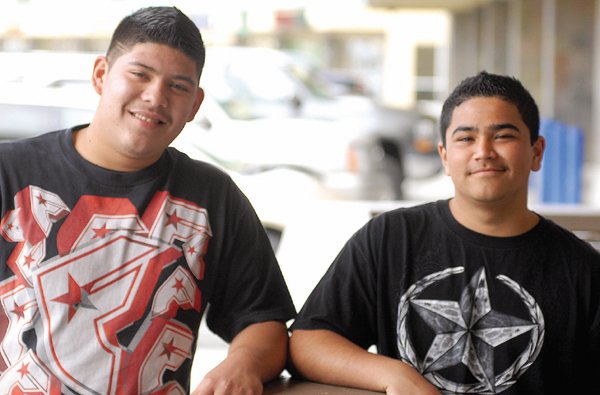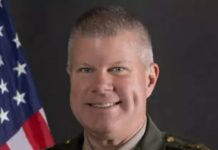Water takes up nearly 80 percent of the world’s surface, yet
it’s still one of the earth’s most unpredictable elements. And a
little more than a week ago, San Benito High School students
Cristian Galvan and Esteban Ruiz discovered that first hand.
Water takes up nearly 80 percent of the world’s surface, yet it’s still one of the earth’s most unpredictable elements. And a little more than a week ago, San Benito High School students Cristian Galvan and Esteban Ruiz discovered that first hand.
The two 16-year-old boys jumped in the water at Marina State Beach on March 28 but were unable to get back without help.
While visiting his extended family in Prunedale, Galvan and his friend Ruiz got caught in a strong current that swept the two boys out to sea.
On the clear day, the beach looked calm, Galvan said. That, however, wasn’t the case.
The two boys were in the water for only 20 minutes before they decided it was time to leave, but by then, they were nearly a full football field from the beach.
“It was cold, so we were going to get out, but the waves were keeping us (in),” Galvan said.
Trying to swim back to the beach where Galvan’s mom, Christina Rivera, had been standing, the boys struggled to make any forward movement, he said. Instead, the harder the two worked, the farther they were pushed out.
Galvan’s mom watched her son slowly disappear into the horizon, he said.
“It was a regular day swimming there but after eight minutes passed, we weren’t there anymore,” Galvan said. “After a little bit all (my mom) could see was a little dot.”
As Galvan’s mother watched in the distance, the two friends struggled to stay above the water, Ruiz said.
“After a while I asked him to hold my hand because I wasn’t going anywhere,” Ruiz said.
The smaller Ruiz was battered by the strong waves, he said.
The 16-year-old was flipped inside the waves, struggling to find the surface, Ruiz said.
“I went underwater and did a little flip and I struggled to get back up,” Ruiz said. “I kept on getting hit by the waves … I was underwater for a while.”
Surfer lends a land
Luckily, 40-year-old Prunedale surfer Brian Simpson was watching closely.
“The place where they were swimming usually has a pretty bad rip tide,” Simpson said. “When I saw them swimming there they looked pretty tired. Cristian was looking like he was having a tough time keeping his head up.”
Simpson quickly grabbed his surfboard and made his way out to the struggling boys. Simpson allowed the boys to rest on his board and catch their breath.
Simpson’s friend, Wayne Kelly, joined him with another board, hoping to bring the kids back to the beach, but the ocean’s current was too strong.
Simpson was glad that the boys accepted his help, instead of flailing in the ocean, he said.
“I’d rather be on the side of caution,” Simpson said. “I thought they would say no and go away but I’d rather ask to see if they need help. Luckily, they said yes.”
And Simpson’s 26 years of experience in the ocean helped calm down the boys, he said.
“I kept on telling them everything will be fine,” Simpson said. “I told them I wouldn’t let anything happen to them.”
While Simpson helped calm the boys, another friend called the U.S. Coast Guard and 10 minutes later, the four were safe aboard a Coast Guard boat.
Rivera watched stunned from the beach, she said, translated through Ruiz and Galvan.
“At first, I didn’t know how bad it was – I thought everything was okay,” she said. “I thought they were just asking to borrow the surfboards to learn.”
She quickly realized Simpson was there to help.
“I am very grateful, because if he didn’t help, I don’t know what would have happened,” she said, calling Simpson her son’s guardian angel.
The boys were then brought to Monterey for medical attention that wasn’t needed, Galvan said. Instead, they just wanted to go home.
But the events won’t keep them from the water, although they will he hesitant, Ruiz said.
“Yeah, I would go back but I would just be more careful,” he said. “It’s something we have to look out for now.”
Galvan added that that it’s something from which to learn.
“You learn to respect the water,” he said.














